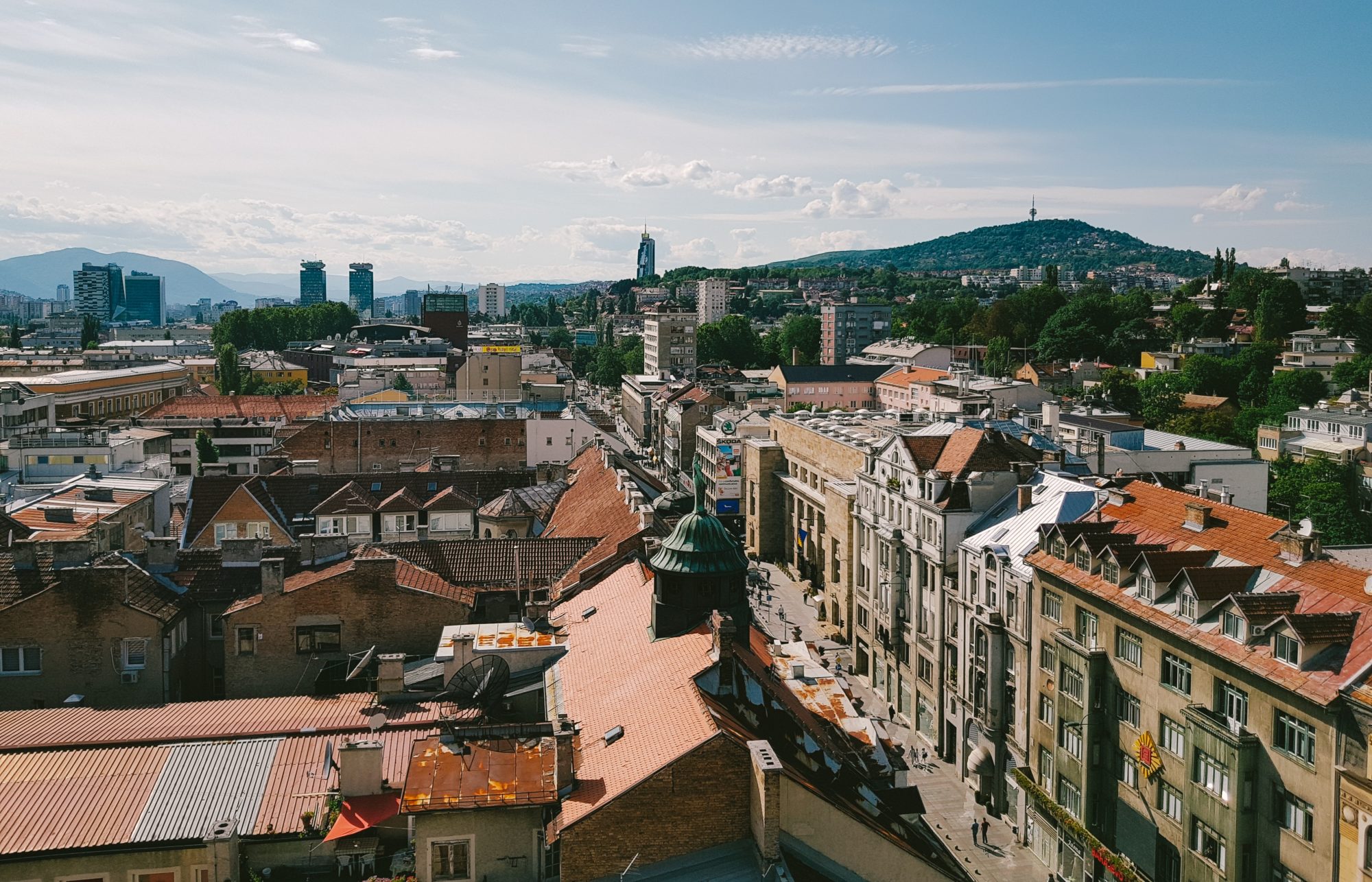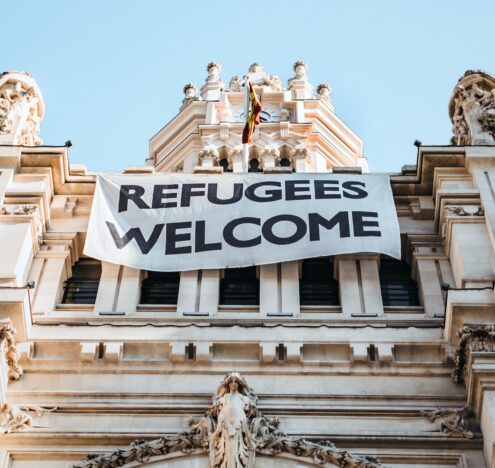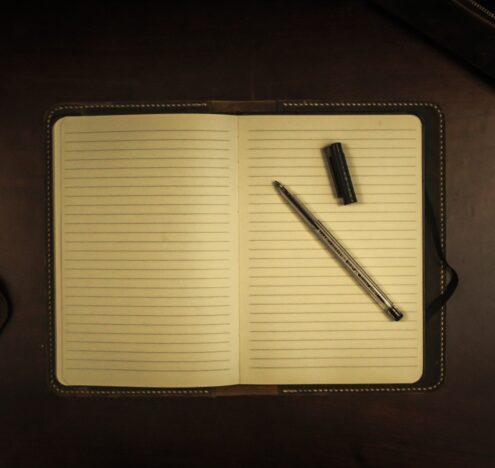On the 29th of November 2017, the reality of justice and defiance mirrored fantasy in the Balkans. The shining turquoise waters that run through the “war recovered” region of Herzegovina were a sparkling facade for the betrayal and frustration that lie just below the surface of a tourist economy and run deep within the soil of Bosnia i Herzegovina. The UN war tribunals of The Hague have stoked slow burning embers and illuminated the turmoil that plagues the stunning landscape and remnants of the Ottoman Empire. What follows is sincere acknowledgment that all politics, and by extension conflicts, are incredibly local. What applies in Sarajevo might not apply in Srebrenica and what applies in Srebrenica might not apply in Mostar. I have friends on all sides of the conflict and I intend to visit all of them, as well as all the Balkan countries, again. But, almost a decade ago, I was misled, and I naively perpetuated a myth for years. It is time to correct this. So here is my simple attempt to deliver a narrative of justice for Mostar.
I had the best timing to be traversing through Bosnia i Herzegovina, or the worst timing depending on one’s perspective, but either way it was impeccable. Five days prior to Slobodan Praljak’s feigned martyrdom at the Hague, I was in Srebrenica when the Bosnian Serb Commander Ratko Mladic was convicted of genocide, crimes against humanity, and war crimes. I was at the memorial in Potocari. After gazing at over 800 memorials perfectly aligned and walking through the hills that lay tribute to the fallen with my toddler, interacting with some of the guards and the press, I decided to walk into the neighboring town of Bratunac and spent my day sharing beers with a local Serbian shop owner and postal workers. The following day, I walked the Guber Promenade of healing mineral waters with a new Bosniak friend. Although I’ve written a battle analysis on Srebrenica, read countless articles and watched documentaries, it was Srebrenica itself that taught me how little I still understand about the war and the sense of betrayal, grievances and injustice that remain. There were relics of assistance and UN presence on windows and buildings, there was a new playground being built and shopping plaza, but when the word reconciliation was mentioned, I received dagger eyes and was told that local politicians are inciting tensions on both the behalf of the Bosnian Serbs and the Bosniaks, the economy is in the pits, and there will be another conflict so there is nothing to invest in. Serbs seem to want to emigrate from Bosnia to Belgrade, Serbia; meanwhile Bosniaks are content to let Saudis buy their residential and commercial property.
At approximately 11 AM on the 29th of November, 2016 I left the Airbnb that I was renting, and walked down Marsala Tita Street towards the Neretva River. My son fell asleep on my way into town and I slowed my pace to take advantage of the quiet of a sleeping two year old in order to take some pictures of the newer bridges and then work my way towards Stari Most. I made a conscious decision to disturb my own peace and push through the vibrations of the cobblestones that lead up to the old bridge, which would risk waking my sleeping toddler. When I reached the bridge, I could not push any farther because the steps were placed in such a manner that I could not “pop wheelies” with the stroller, the only option to reach the summit was to lift my 30 plus pound boy in his stroller as I walked over the bridge. When I reached the top of the bridge, I was exhausted and amused. I paused for a moment to relish in my triumph, when I heard a man say “pomoc,” the Bosnian word for “help.” I nodded my head and said “yes!” The man helped carry Sasha down the bridge with me. Even after the generous assistance from the stranger on the bridge, I was still weary and a bit calorie deficient from my jaunt into town and over the bridge. I decided to relish in the tranquility of my still-sleeping child, and I entered a cafe a few feet from the base of the bridge.
As I entered the cafe, I set Sasha’s stroller in the back left corner and approached the counter to look at pastries and order my usual latte. I noticed that there was a TV hanging from the wall closest to the street, where a screen was divided into many different perspectives of reporters and commentators indicating that the coverage was live and significant. I asked the barista what was going on and she said, “do you know about the bridge?” I said, “yes, I think so.” I thought to myself, “I just walked across it and read all the information.” But I didn’t know how that related to the coverage on the television. I looked at her quizzically and said, “I don’t understand what you mean. Can you tell me what is happening?” She said it was better if I didn’t know and to have a seat. I sat down a bit defeated and feeling deprived of information, so I logged onto the wi-fi and started googling “bridges” “Balkans” “Bosnia” “Croatia,” I honestly thought there had been a terrorist attack in Dubrovnik or Zagreb. I had no idea that she was actually referring to the very bridge I had just crossed. Sasha eventually woke up and as he stirred two pretty girls next to us looked at him and cooed a little. Their captivation with the commotion on television began to wane and Sasha became their new focus. When it became clear that Sasha was not going back to sleep, I avoided forfeiting my phone and instead tried to appease him with snacks. I sang to him, then the girls from the other table sang to him and one of them eventually offered their phone to him proclaiming “I cannot sing very many English songs to you, but you can watch music videos on my phone if you want!” I snapped a couple of pictures of Sasha with his new friends, but I was not as discrete as I should have been. Sasha caught me and wanted to come back to me with his newly acquired smartphone. “Oh shoot,” I thought to myself, just what I need, Sasha to break a local phone, but she insisted that he could watch his shows on her phone. So, I moved our belongings to her table to both appease her and Sasha. When I relocated to the table with the girls, things became more confusing at first, but eventually more clear.
I was happy to see the adoration for Sasha in these girls’ eyes. They were close in age to me, so not only would their playfulness offer me a bit of respite from Sasha and his insatiable demand for interaction, but it would also give me some female companionship that is sometimes hard to find when you are traveling alone with only a backpack and toddler in tow. The girls at the table were naturally beautiful, but not exotic; they both had light eyes and pleasant complexions. If we were in a Starbucks in Nashville or Phoenix, they would have blended right in. But it was their authenticity and immediate love for Sasha that struck me.
Once Sasha and I settled into the new seating arrangement, we all sipped on our beverages and stared at the television screen. One of the girls abruptly said, “I heard you asking the waitress what happened, I will explain.” With glistening eyes, my new friend began to demystify the cinematic news unfolding on television. A Croatian war criminal from the Bosnian War was found guilty at the Hague today and when the judge delivered the news that his sentence was upheld, he dramatically responded with: “I do not accept,” and then he drank a small glass of poison. The judge could not initially see what happened, but when he did he ordered a “recess” and the media stopped filming as well. The man being brought to justice over 20 years later for trying to ethnically cleanse Bosnia of Bosniaks in order to create a “Greater Croatia,” and destroying a bridge 25 meters from where I currently sat may have just killed himself on live television. I was in Srebrenica on the day of Mladic’s sentencing, and there I was in Mostar, the day Praljak’s sentence was upheld and he committed suicide. It was strange timing indeed. The girls eagerly awaited for the news to return, I tried to leave a couple times because I sensed how deeply personal this time was, but it was raining and every time I tried to leave, the girls said that “no, you must stay,” and so there I was, committed to learning about concepts of betrayal and justice in the Balkans. I found myself biting my tongue constantly, so that I could truly listen, and I found myself fighting every pre-conceived notion of what being a Bosniak, versus a Serb, versus a Croat were.
The strange thing was, this wasn’t my first trip to Mostar. In 2009, I spent my two week “Rest and Relaxation” from Iraq in Dubrovnik, Croatia. From Dubrovnik, I took a guided tour to Mostar, Bosnia. I can still remember how captivated I was by the stories of the Croatian tour guide. She told us about the siege of Dubrovnik and how she remembers her father and his friends converting sections of their home into spaces to conduct military planning. I remember how she showed us the remnants of conflict, specifically pockmarked buildings on the outskirts of Mostar, which remained a decade later. Most importantly to this story, I remember something else, which I naively and embarrassingly accepted and perpetuated for years to come. She told me that historically, Mostar was divided between Croats (Catholics) and Bosniaks (Muslims) and that this division goes back for centuries. She said that when the Serbs besieged Mostar in March of 1992 (in response to the Bosnian Referendum for Independence), that the Bosniaks and Croats suspended their ongoing feuds and turned their weapons outwards to defend the city against the Serbian aggressors, and defeated the aggressors in June 1992. This story about enemies turned allies, the strength of a local defense and solidarity in the face of an external aggressor captivated me for nearly a decade, but it turns out it was just that — a story.
The truth seems to be relative and elusive in the Balkans. From what I have found in conversation and research is that the Croats did originally agree to defend Mostar with the Bosniaks against the Serbs. However, a few months after the pact between the Bosniaks and the Croats, their alliance disintegrated and the Croats began to collude with the Serbs in order to divide and cleanse Bosnians of their territory and ethnicity, and to destroy the symbolic Ottoman-constructed bridge on November 9th, 1993.
The Bosnian War is incredibly complex, and in order to understand any concept justice or reconciliation, the student of the Balkans must take a hyper local approach. In Mostar, the Croats were not the victims of the Serbs. They were the co-conspirators. Praljak was not merely a leader in the Croatian Military; there is evidence that he ordered the destruction of the bridge and of human lives.
When a female from Mostar visits Sarajevo, she is referred to as a “Mostarka.” As I waited for the rain to pass, my new friends, Mostarki, filled the silence of waiting for the new verdict of Praljak-life-or-death by asking me questions about my travel and time abroad in other locations. They also shared with me their personal stories, and I took the opportunity to learn about them as individuals as well as to try to understand the collective memory of Mostar and greater Bosnia in relationship to the conflict.
I asked them a typical “foreigner” question: “what has reconciliation consisted of in Bosnia, specifically in Mostar?” Their response was laughter, they said that every foreigner with a backpack wants to know about “reconciliation,” but they claimed that there hasn’t been reconciliation because there hasn’t been justice. The irony is that for the past decade Croats and Bosniaks have been co-existing, but it’s not because of reconciliation. The Hague proceedings could produce and reveal deep fault lines capable of destroying the relationships of people who didn’t directly participate in the conflict themselves.
One Mostarka shared a story about one of her dear friends, or maybe a former dear friend. Her friend was in her wedding, she is a Croat, and before the trials at The Hague, Croats and Bosnians were friends. But recently, things have changed. Croats have been posting photos of Croatian Generals on trial at The Hague and calling them heroes. The Mostarka explained that if the man [Praljak] who tried to ethnically cleanse Bosnia and destroy the bridge is a hero in her friend’s mind, then what does she actually think of her? This anecdote illuminates the tensions that linger just below the surface of the Nevetska of Mostar. The Mostarka I was talking to said it is now impossible for her to sit at the same table with her friend who considers Praljak a hero. The collective memory of the Bosnian War is mired in perspective and ethnocentric narratives, so when in the Balkans, I’ve learned to assume nothing. I leave my ears open and my mouth closed.
I elicited another response similar to the response I received for my naive “reconciliation” question, when I asked if the Hague Trials were useful because they seemed to be bringing up so many negative memories and inciting new ethnically-derived tensions. One of my new friends turned to me, held up her hand and said – “yes, this is what they say on the television too.” “OK, got it,” I thought to myself. There is no question that is new under the sun here, and apparently, I’m mired in Western thought and curiosity. The other girl piped in that she hoped Praljak is still alive “because I want some justice” she explained, “we have waited for justice.” They answered my next question for me, about what they wanted for Praljak [survival and justice]. They want a slow burn, not cowardice masquerading as defiance and martyrdom. Unfortunately, my new friends did not get their wish. Praljak’s suicide attempt was successful. He managed both to kill himself and highjack the narrative in The Hague on the 29th of November 2017.
It was the Internet that broke the news about Praljak’s death before the television began to report on the incident. Shortly after the news, memes of Praljak began flowing in. One meme mocked Praljak saying “I’m ready” holding the poision like a shot, and then it said “for heaven,” but with a specific Muslim/Bosniak word for heaven. This was explained to me as a play on words, from when Praljak used to say “I’m ready to defend my homeland.” Justice takes strange forms in the Balkans and on social media, but for the Bosniaks of Mostar, this dark comedy might be all the vindication they receive. Justice will remain an elusive concept.
The girls pointed at the barista who didn’t speak English well enough to explain what was going on and said, “her dad was in a concentration camp.” They pointed at a man who came in and turned off the news in order to turn music videos on and said, “his father was shot in Spanish Square, where he laid bleeding and dying for days.”
Praljak traded justice for theater.
I remain a sojourner and student of the Balkans with limited understanding, but for a couple of days in Bosnia, my travels coincided with the Hague proceedings of criminals from the Bosnian War. I heard perspectives worth sharing and stories worth telling. I can’t create reconciliation, justice, or peace for my new friends, but I can share their story — for them, for their families, for their town, and for that beautiful bridge.
Kimberly Metcalf served as a U.S. Army officer for over ten years; she deployed to Iraq, Afghanistan, Qatar, Jordan, Turkey and Syria. Metcalf departed from military service on Nov. 1, 2017, and is currently traveling the world. She spent November and December 2017 backpacking with her toddler through the Balkans and Italy. You can email her at kimberlyimri@gmail.com, follow her on twitter @obstinategypsy, and follow her travels on Instagram @kimberlyimri.





















